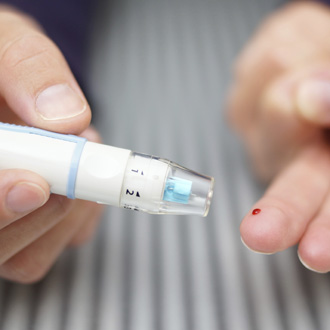The national diabetes prevention strategy should be ‘refined’ before being rolled out in GP practices next year to eliminate the risk of overmedicalisation, experts have said.
NHS England and Public Health England have been warned that the flagship programme, which will see GPs screening millions of patients who are overweight or obese, risks boosting prescribing of blood-sugar lowering medication without tackling the root causes behind the rising rates of diabetes.
In letter published in theLancet Diabetes and Endocrinology, Professor John Yudkin, emeritus professor of medicine at University College London, and Dr Christopher Millett, reader in public health at Imperial College, said that unless it is reworked there is a risk of ‘the programme adopting a narrow clinical approach, which will only serve to expand diagnostic labelling (prediabetes), increase prescriptions for glucose-lowering medications, and have limited impact in halting the diabetes epidemic in England’.
The critics also warned the programme risks ‘exaggerating’ expected reductions in diabetes from planned lifestyle interventions – which include Zumba and cooking classes on prescription – and called for more efforts to build physical activity into people’s everyday lives as well as tighter restrictions on sugary foods.
The article said: ‘Priorities for action should include altering the built environment to enable people to undertake physical activity as part of everyday life and introducing meaningful regulation of the food industry, something entirely absent from the government’s Public Health Responsibility Deal.
‘We suggest that NHS England should refine the NHS diabetes prevention programme objectives and outcome measures accordingly.’
Related stories
Screening the masses: GPs set for contractual incentives to measure diabetes risk
Should practices be paid to screen for type 2 diabetes risk?
But NHS England and Public Health England said their scheme is backed by evidence and will build on experience from pilots to make sure the programme cuts the incidence of diabetes.
In response to the letter, Professor Bruce Keogh, national medical director at NHSE, and colleagues at both NHSE and PHE, argued that while it will ‘indeed be a challenge to match the results of the trials in real community setting’ this was the ‘whole point’ of population-based approaches.
They added that a PHE commissioned review of diabetes prevention approaches – currently in preparation – would ‘ensure the [programme] is underpinned by robust evidence’.

















